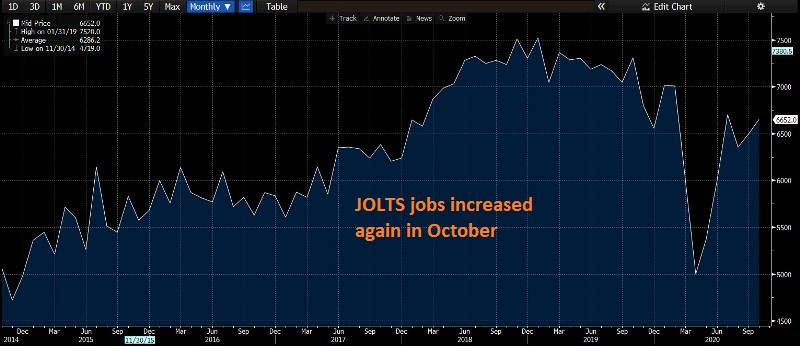
Forex is always traded in pairs. One currency is paired with the other. GBP/USD for sterling is one example. Traders speculate on the direction of currency prices by taking positions. These currency pairs are known as base and counter currencies. The base currency, or the GBP/USD pair, is the base currency, while the counter currency, or USD/GBP pair, is the counter currency.
Foreign currency pairs
Supply and demand are both important factors in determining the price of forex currency pairs. These central banks can often influence these variables. These central banks sometimes intervene to prevent price movement risks. But they only do this when price fluctuations could cause economic damage. The most important factors that affect currency pairs' prices are the economic situation in the country they come from, interest rates, as well as expectations about where the currency/country will be going in the future. These factors are reflected through the current currency value, which is determined via a currency quote.

In relation to other currencies, currency strength decreases or increases
Understanding how currency values change over time is crucial if you're interested in foreign exchange. Currency strength can be described as the value of a currency in relation to other currencies. A currency increases in value relative to the currency from another country. Its value can be affected by many factors, such as supply and demand and inflation. For example, the British empire has decreased in size and the pound has lost its value. The pound is still relatively strong compared to the US Dollar.
The currency can be affected by economic events
Currency values fluctuate due to the economic conditions of a country. When an economy experiences positive growth, investors prefer to invest in it, driving up the value of the currency in the country. Conversely, negative news can slash demand for the currency in the country, causing the value to drop. The markets monitor key economic indicators like money supply and inflation, unemployment, trade balance, as well as other key indicators. A strong economy on the other side will cause the currency to appreciate as the demand for it will be higher.
Trading with leverage
Forex trading with leverage is a straightforward strategy that can increase your purchasing power. This is a popular trading strategy because it can increase both your gains and your losses. It's similar to margin trades in stocks or futures. Read on to learn how leverage can be used in forex. You'll discover the pros and cons of trading with leverage in forex. Start trading with leverage in forex today if interested.
ECN brokers allow you to trade
ECN brokers will transfer your trade orders between your broker and the exchange for execution. This is a better option than trading with an STP agent. ECN brokers offer low-cost trading to high rollers, because most charge $1 per trade and a minimum commission of $3 per $100 000 traded. ECN brokers are expensive if you have a smaller account or trade volume. It is possible to be overwhelmed by the costs of opening and closing trades.

IG offers competitive spreads
IG's reputation of offering competitive spreads in forex trading is built on a foundation that includes innovative features. The flagship DailyFX website is a portal that provides market news, research, and other resources to IG clients. It offers real-time market information, including a tick graph, and hosts a vibrant community of more than 60,000 members. DailyFX offers several live webinars to help traders sharpen their trading skills and highlight important market events.
FAQ
What is security on the stock market?
Security can be described as an asset that generates income. Most common security type is shares in companies.
Different types of securities can be issued by a company, including bonds, preferred stock, and common stock.
The value of a share depends on the earnings per share (EPS) and dividends the company pays.
When you buy a share, you own part of the business and have a claim on future profits. You receive money from the company if the dividend is paid.
Your shares can be sold at any time.
What is the difference between a broker and a financial advisor?
Brokers are specialists in the sale and purchase of stocks and other securities for individuals and companies. They take care all of the paperwork.
Financial advisors are experts on personal finances. They use their expertise to help clients plan for retirement, prepare for emergencies, and achieve financial goals.
Banks, insurance companies or other institutions might employ financial advisors. They can also be independent, working as fee-only professionals.
Consider taking courses in marketing, accounting, or finance to begin a career as a financial advisor. Also, it is important to understand about the different types available in investment.
Why are marketable Securities Important?
An investment company's primary purpose is to earn income from investments. This is done by investing in different types of financial instruments, such as bonds and stocks. These securities have certain characteristics which make them attractive to investors. They may be considered to be safe because they are backed by the full faith and credit of the issuer, they pay dividends, interest, or both, they offer growth potential, and/or they carry tax advantages.
It is important to know whether a security is "marketable". This refers to the ease with which the security is traded on the stock market. You cannot buy and sell securities that aren't marketable freely. Instead, you must have them purchased through a broker who charges a commission.
Marketable securities can be government or corporate bonds, preferred and common stocks as well as convertible debentures, convertible and ordinary debentures, unit and real estate trusts, money markets funds and exchange traded funds.
Investment companies invest in these securities because they believe they will generate higher profits than if they invested in more risky securities like equities (shares).
What is the difference between the securities market and the stock market?
The securities market refers to the entire set of companies listed on an exchange for trading shares. This includes stocks, options, futures, and other financial instruments. There are two types of stock markets: primary and secondary. The NYSE (New York Stock Exchange), and NASDAQ (National Association of Securities Dealers Automated Quotations) are examples of large stock markets. Secondary stock markets allow investors to trade privately on smaller exchanges. These include OTC Bulletin Board Over-the-Counter (Pink Sheets) and Nasdaq ShortCap Market.
Stock markets are important because they provide a place where people can buy and sell shares of businesses. It is the share price that determines their value. The company will issue new shares to the general population when it goes public. These shares are issued to investors who receive dividends. Dividends are payments that a corporation makes to shareholders.
In addition to providing a place for buyers and sellers, stock markets also serve as a tool for corporate governance. Boards of Directors are elected by shareholders and oversee management. Boards make sure managers follow ethical business practices. The government can replace a board that fails to fulfill this role if it is not performing.
Who can trade on the stock exchange?
Everyone. All people are not equal in this universe. Some people have better skills or knowledge than others. So they should be rewarded for their efforts.
But other factors determine whether someone succeeds or fails in trading stocks. If you don't understand financial reports, you won’t be able take any decisions.
You need to know how to read these reports. Each number must be understood. It is important to be able correctly interpret numbers.
If you do this, you'll be able to spot trends and patterns in the data. This will help you decide when to buy and sell shares.
And if you're lucky enough, you might become rich from doing this.
How does the stock exchange work?
When you buy a share of stock, you are buying ownership rights to part of the company. The shareholder has certain rights. He/she can vote on major policies and resolutions. He/she can seek compensation for the damages caused by company. He/she also has the right to sue the company for breaching a contract.
A company can't issue more shares than the total assets and liabilities it has. This is called "capital adequacy."
A company with a high capital sufficiency ratio is considered to be safe. Companies with low capital adequacy ratios are considered risky investments.
What are the benefits of investing in a mutual fund?
-
Low cost - buying shares from companies directly is more expensive. A mutual fund can be cheaper than buying shares directly.
-
Diversification – Most mutual funds are made up of a number of securities. If one type of security drops in value, others will rise.
-
Management by professionals - professional managers ensure that the fund is only investing in securities that meet its objectives.
-
Liquidity: Mutual funds allow you to have instant access cash. You can withdraw money whenever you like.
-
Tax efficiency - Mutual funds are tax efficient. As a result, you don't have to worry about capital gains or losses until you sell your shares.
-
Purchase and sale of shares come with no transaction charges or commissions.
-
Mutual funds can be used easily - they are very easy to invest. All you need to start a mutual fund is a bank account.
-
Flexibility: You can easily change your holdings without incurring additional charges.
-
Access to information - you can check out what is happening inside the fund and how well it performs.
-
Investment advice - you can ask questions and get answers from the fund manager.
-
Security - know what kind of security your holdings are.
-
Control - You can have full control over the investment decisions made by the fund.
-
Portfolio tracking - You can track the performance over time of your portfolio.
-
Easy withdrawal - it is easy to withdraw funds.
Investing through mutual funds has its disadvantages
-
There is limited investment choice in mutual funds.
-
High expense ratio: Brokerage fees, administrative fees, as well as operating expenses, are all expenses that come with owning a part of a mutual funds. These expenses eat into your returns.
-
Insufficient liquidity - Many mutual funds don't accept deposits. They must be purchased with cash. This restricts the amount you can invest.
-
Poor customer service - there is no single contact point for customers to complain about problems with a mutual fund. Instead, you should deal with brokers and administrators, as well as the salespeople.
-
High risk - You could lose everything if the fund fails.
Why is a stock security?
Security is an investment instrument whose worth depends on another company. It can be issued as a share, bond, or other investment instrument. The issuer promises to pay dividends and repay debt obligations to creditors. Investors may also be entitled to capital return if the value of the underlying asset falls.
Statistics
- The S&P 500 has grown about 10.5% per year since its establishment in the 1920s. (investopedia.com)
- US resident who opens a new IBKR Pro individual or joint account receives a 0.25% rate reduction on margin loans. (nerdwallet.com)
- Even if you find talent for trading stocks, allocating more than 10% of your portfolio to an individual stock can expose your savings to too much volatility. (nerdwallet.com)
- "If all of your money's in one stock, you could potentially lose 50% of it overnight," Moore says. (nerdwallet.com)
External Links
How To
How to Invest Online in Stock Market
You can make money by investing in stocks. There are many methods to invest in stocks. These include mutual funds or exchange-traded fund (ETFs), hedge money, and others. The best investment strategy depends on your risk tolerance, financial goals, personal investment style, and overall knowledge of the markets.
To become successful in the stock market, you must first understand how the market works. Understanding the market, its risks and potential rewards, is key. Once you are clear about what you want, you can then start to determine which type of investment is best for you.
There are three types of investments available: equity, fixed-income, and options. Equity refers to ownership shares in companies. Fixed income can be defined as debt instruments such bonds and Treasury bills. Alternatives include commodities, currencies and real estate. Venture capital is also available. Each category comes with its own pros, and you have to choose which one you like best.
There are two main strategies that you can use once you have decided what type of investment you want. The first strategy is "buy and hold," where you purchase some security but you don't have to sell it until you are either retired or dead. Diversification is the second strategy. It involves purchasing securities from multiple classes. If you purchased 10% of Apple or Microsoft, and General Motors respectively, you could diversify your portfolio into three different industries. Multiple investments give you more exposure in different areas of the economy. It helps protect against losses in one sector because you still own something else in another sector.
Risk management is another crucial factor in selecting an investment. You can control the volatility of your portfolio through risk management. A low-risk fund could be a good option if you are willing to accept a 1% chance. If you are willing and able to accept a 5%-risk, you can choose a more risky fund.
Learn how to manage money to be a successful investor. You need a plan to manage your money in the future. Your short-term, medium-term, and long-term goals should all be covered in a good plan. You must stick to your plan. Don't get distracted by day-to-day fluctuations in the market. You will watch your wealth grow if your plan is followed.